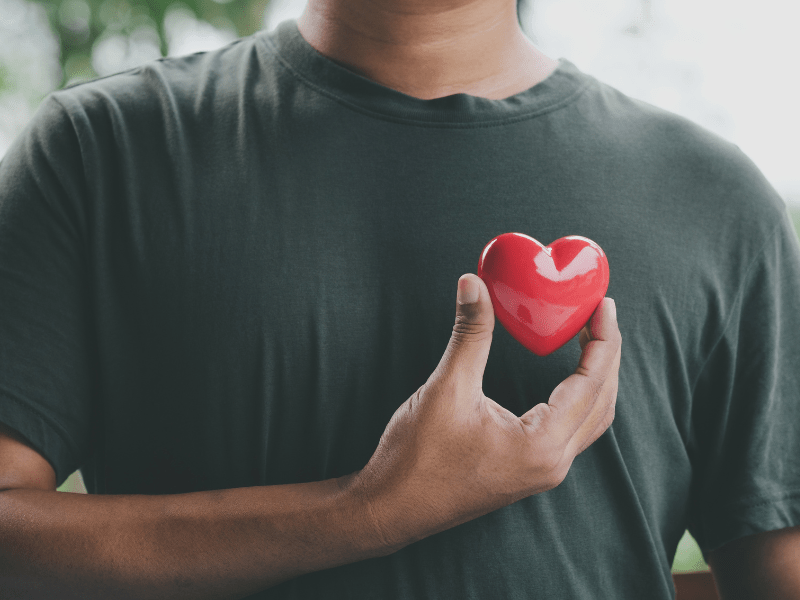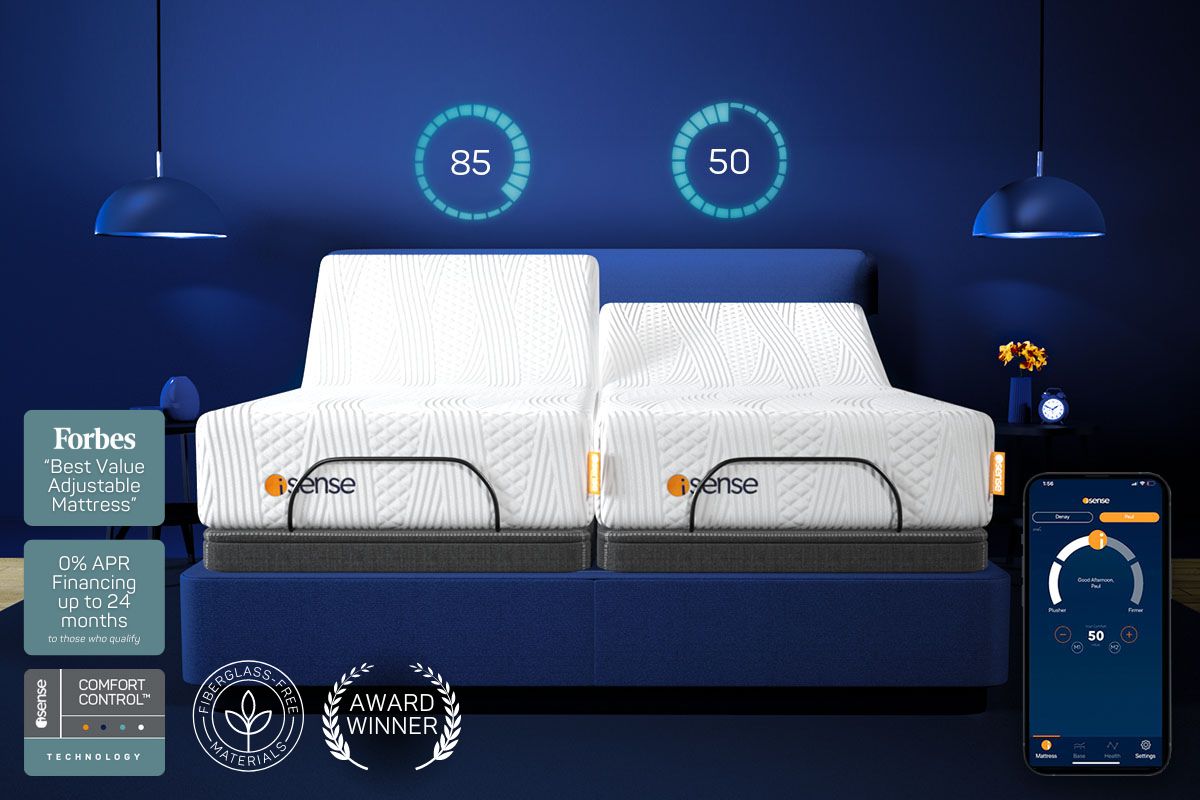Having trouble falling asleep or staying asleep through the night? You're not alone - it's reported that one in three adults suffer from insomnia. In this article, we'll delve into non-pharmaceutical sleep aids and natural remedies to combat insomnia and improve your sleep quality.
Ready to catch those elusive Zzzs? Let's explore these tranquil routes to restful nights!
Understanding Insomnia
Insomnia is a common sleep disorder characterized by difficulty falling asleep, staying asleep, or experiencing poor quality sleep.
What is Insomnia?
Insomnia is a sleep disorder. People with this problem find it hard to fall asleep or stay asleep. You might wake up many times during the night, and then feel tired the next day. It can make you feel upset and stop you from doing things well in your daily life.
Sometimes, things like stress or medications may cause insomnia.
Causes of Insomnia
Insomnia can hit anyone, making it hard to fall asleep. There are many reasons why you might have trouble sleeping.
- Stress is a common reason for insomnia. It leads to sleep disturbances and affects your sleep quality.
- Certain pills could be causing your sleeplessness. Some drugs can disrupt sleep patterns and lead to insomnia.
- Is your bed comfy? Your sleep habits and where you rest have a big part to play in how well you doze off.
- Any person who has gone through a scary event may lose sleep over it. These are known as anxiety disorders and they make it difficult to fall asleep.
- If you're sad all the time, it could be because of depression. People with this condition often wake up too early in the morning which is one sign of sleep disorders.
- Believe it or not, some people can't get enough rest even though they don't take any substances or meds that would cause this problem.
- For women going through the menopause stage, they might find themselves dealing with hot flashes or night sweats that keep them up at night.
- In general, insomnia is a common problem for many people around the world regardless if there's another health issue happening at the same time or not.
Symptoms of Insomnia
Insomnia is a health issue many people face. Here are some signs that you might have insomnia:
- You find it hard to fall asleep at night.
- You wake up too often in the night.
- You wake up very early in the morning and can't go back to sleep.
- You feel tired when you wake up, not fresh and ready for your day.
- It is tough for you to focus during the day.
- Your sleep is not sound and peaceful.
- You feel sleepy during the day even if you slept at night.
Risks of Insomnia
Insomnia can have negative effects on your overall health and well-being. When you don't get enough sleep, it can result in sleepiness during the day, difficulty concentrating, and decreased cognitive function.
Sleeplessness can also lead to mood disruptions like irritability and depression. Chronic insomnia is associated with a higher risk of developing other medical conditions such as obesity, diabetes, cardiovascular disease, and even certain types of cancer.
It's important to address insomnia because ongoing sleep problems can significantly impact your quality of life and overall health.
Natural Remedies for Insomnia
Establishing a sleep routine, creating a sleep-conducive environment, practicing relaxation techniques, exercising regularly, and limiting caffeine and alcohol intake can all help improve your sleep.
Read on to discover more natural remedies for insomnia.
Establish a Sleep Routine
Having a consistent sleep routine can help improve your sleep quality. Here are some tips to establish a sleep routine:
- Set a regular bedtime and wake-up time, even on weekends.
- Create a relaxing bedtime routine, such as reading or taking a warm bath.
- Make your bedroom a comfortable and sleep-friendly environment by keeping it dark, cool, and quiet.
- Avoid stimulating activities before bed, like watching TV or using electronic devices.
- Try relaxation techniques like deep breathing or meditation to calm your mind before sleep.
Create a Sleep-Conducive Environment
To improve your sleep environment and promote better rest, try these tips:
- Keep your bedroom dark and quiet.
- Use earplugs or a white noise machine to block out any disturbing sounds.
- Make sure your mattress and pillows are comfortable and supportive.
- Use breathable bedding and keep the room at a cool temperature.
- Remove any electronics from the bedroom or turn them off before bedtime.
- Keep the room clean and decluttered for a peaceful atmosphere.
Practice Relaxation Techniques
Relaxation techniques can help improve sleep quality. Here are some techniques to try:
- Deep breathing exercises: Take slow, deep breaths in through your nose and out through your mouth. This can help calm your mind and relax your body.
- Progressive muscle relaxation: Start by tensing and then relaxing each muscle group in your body, from your toes all the way up to your head. This can release tension and promote relaxation.
- Guided imagery: Imagine yourself in a peaceful and calming place, like a beach or a forest. Focus on the details of this place to distract your mind from racing thoughts.
- Meditation: Find a quiet space and sit comfortably. Close your eyes and focus on your breath or repeat a calming phrase or word in your mind. This can help clear your mind and promote relaxation.
- Aromatherapy: Use essential oils like lavender or chamomile, which have calming properties, in a diffuser or spray them on your pillow before bedtime.
Exercise Regularly
Regular exercise is an important natural remedy for insomnia. Studies have shown that exercise can improve the quality of sleep, mood, and overall quality of life for older adults with insomnia.
It doesn't have to be intense - moderate-intensity exercises like walking or low-impact aerobic exercises can make a difference. Just make sure not to exercise too close to bedtime, as it may interfere with falling asleep.
So, if you're struggling with sleepless nights, adding regular physical activity into your routine might just help you catch those Zzzs!
Limit Caffeine and Alcohol Intake
Limiting your caffeine and alcohol intake can significantly improve your sleep quality. Caffeine is found in coffee, tea, soda, and certain medications and it can disrupt your sleep patterns by making it harder to fall asleep or stay asleep. Drinking coffee at night can have negative effects on your sleep, causing difficulties in falling asleep and staying asleep. Additionally, synthetic caffeine added to energy drinks and medications can further contribute to sleep disturbances.
By reducing or avoiding caffeine altogether, you may experience better sleep duration and overall improved sleep quality.
Alcohol may initially make you feel drowsy or help you fall asleep faster, but it actually disrupts the normal pattern of deep REM (rapid eye movement) sleep. This interruption leads to poor sleep quality throughout the night. As a result, you may wake up feeling tired even after a full night's rest. To improve your chances of getting restful sleep naturally and alleviate insomnia symptoms, it is essential to limit or avoid alcohol consumption before bedtime.
Other Ways to Improve Sleep
Improve your sleep with these simple tips and tricks. Want to know more? Keep reading!
Sleep Hygiene Tips
Improving your sleep hygiene can help you get better sleep. Here are some tips to improve your sleep habits:
- Stick to a regular sleep schedule. Try to go to bed and wake up at the same time every day, even on weekends.
- Create a comfortable sleep environment. Make sure your bedroom is dark, quiet, and at a cool temperature.
- Avoid stimulating activities before bed. Stay away from screens (TV, phone, computer) for at least an hour before bedtime.
- Don't nap during the day, especially in the late afternoon or evening.
- Limit caffeine and alcohol intake, especially in the hours leading up to bedtime.
- Establish a relaxing bedtime routine. This could include reading a book, taking a warm bath, or practicing relaxation techniques like deep breathing or meditation.
- Make your bedroom a place for sleep only; avoid doing work or other stimulating activities in bed.
- Regular exercise can help promote better sleep, but try not to exercise too close to bedtime.
Avoid Napping During the Day
Napping during the day can make it harder for you to sleep at night, especially if your naps are long or happen often. It can mess up your body's internal clock and leave you feeling restless and unable to fall asleep when it's time for bed.
Instead of napping, try exposing yourself to bright light after lunch, which can give you a boost of energy without interfering with your nighttime sleep. So skip the nap and save that energy for a good night's rest!
Limit Screen Time Before Bed
Limiting screen time before bed is crucial for improving the quality of sleep. The use of electronic devices such as smartphones, tablets, and laptops can disrupt sleep patterns and lead to insomnia.
Studies have shown that the blue light emitted by these devices interferes with the production of melatonin, a hormone that helps regulate sleep. By reducing exposure to screens before bed, you can enhance your sleep hygiene and promote better rest. This is especially important for children, as excessive screen time has been linked to sleep disturbances in young individuals. Creating a bedtime routine that excludes digital media and creating a technology-free bedroom environment can significantly improve your ability to fall asleep and stay asleep throughout the night.
Avoid Late-Night Snacking
Late-night snacking can negatively impact your sleep quality and overall health. When you eat close to bedtime, your body has to work hard to digest the food, which can make it difficult for you to fall asleep.
Additionally, consuming high-calorie snacks late at night can contribute to weight gain and disrupt your body's natural hunger cues. Instead of reaching for a snack before bed, try to finish eating at least two hours before you plan on going to sleep.
This will give your body enough time to digest the food and promote better sleep. By avoiding late-night snacking, you'll not only improve your sleep but also support your weight loss goals and enhance your overall well-being.
Keep a Sleep Diary
Keeping a sleep diary is an important step in improving your sleep. By recording details about your sleep habits for a two-week period, you can gain insights into the quality and quantity of your sleep.
This information can help you identify factors that may be affecting your sleep patterns. A standardized tool called the Consensus Sleep Diary is often used to track activities, bedtime routines, sleep quality, and daytime symptoms. Sleep specialists may ask you to keep a detailed sleep diary to better understand your insomnia and determine the most effective treatment approach for you.
9 Best Natural Sleep Aids
Discover the power of natural remedies like lemon balm, valerian root, and chamomile for a restful night's sleep. Read more to explore these non-pharmaceutical solutions to insomnia.
Lemon Balm
Lemon balm is a natural remedy that can help you relax and sleep better. It has been used for a long time in traditional medicine to improve sleep and other sleep-related problems.
Lemon balm can also treat anxiety and insomnia effectively. In fact, studies have shown that lemon balm extract can lower insomnia levels by 42%. So if you're struggling with sleep issues, trying lemon balm might be worth considering.
Valerian Root
Valerian root is a popular herbal remedy that people use to improve their sleep. It's often included in supplements and natural remedies for better sleep. Valerian root is considered safe and effective, but there isn't enough scientific evidence to prove its effectiveness in treating insomnia or other sleep disorders conclusively.
Despite this, many people find valerian root helpful for promoting relaxation and improving their overall sleep quality.
Kava
Kava is an herbal remedy that is known for its ability to soothe anxiety. It is considered one of the best natural sleep aids for better sleep. Some dietary supplements designed to help with sleep combine kava with other herbs like valerian, hops, lemon balm, and passionflower.
Recent studies have even suggested that kava has anti-inflammatory and anticancer effects due to its key phytochemicals. Many people use kava as a drink because it can help relax muscles and induce sedation, making it a popular choice for those looking for a natural way to improve their sleep quality.
Chamomile
Chamomile is considered one of the best natural sleep aids. For many years, it has been used as a traditional herbal remedy to help with insomnia and promote sleep. Chamomile can be consumed as a tea or used in essential oil aromatherapy to create a calming effect.
However, there is no scientific evidence to prove that chamomile is effective for improving sleep. Despite this, chamomile remains a popular choice in alternative medicine for its potential sedative properties. So if you're considering trying chamomile for better sleep, keep in mind that while it may not be proven scientifically, it still holds historical importance and continues to be used by many people today.
Tryptophan
Tryptophan is an amino acid that can be found in certain foods like milk, fish, turkey, chicken, cheese, peanuts, sunflower seeds, and pumpkin seeds. It is known for promoting better sleep and is considered one of the best natural sleep aids.
When you consume tryptophan-rich foods or supplements containing this amino acid, your body digests it and converts it into serotonin and melatonin. These are chemicals that help regulate your sleep-wake cycle and promote relaxation.
Additionally, cereals high in tryptophan have been shown to improve sleep efficiency and time while also reducing anxiety and improving mood. So if you're looking for a natural way to get a good night's sleep without relying on medication, try incorporating more tryptophan-rich foods into your diet or considering nutraceutical products that contain this helpful amino acid.
Magnesium
Magnesium is a mineral that can be found in various nutritional supplements and natural sleep aids. It is believed to help improve sleep, although the evidence supporting this claim is limited.
However, studies have shown a connection between low levels of magnesium and poor-quality sleep or insomnia. While taking magnesium supplements might assist some people with their sleep, it's generally safer to get magnesium from your diet instead.
Passionflower
Passionflower is a popular herbal remedy for insomnia and anxiety. It can be combined with other herbs like valerian and kava to enhance its effects. Passionflower extracts are used to treat various conditions including epilepsy, neuralgia, and withdrawal symptoms.
One specific variety called Passiflora incarnata has been shown to help with anxiety, insomnia, and pain management. Studies have found that a mixture of valerian, passion flower, and hop extract significantly improves sleep time, latency, and the number of nightly awakenings.
So if you're looking for a natural sleep aid, passionflower may be worth considering.
Cannabidiol
Cannabidiol, also known as CBD, is considered to be one of the best natural sleep aids. It is commonly used to reduce pain and anxiety, which can often disrupt sleep. In fact, a study found that CBD had a positive effect on anxiety-related REM sleep suppression. This should only be used as a short-term solution, however.
This means that CBD may be helpful for managing not only insomnia but also chronic pain and anxiety. Whether taken alone or with THC, CBD has shown promise in improving sleep quality without the side effects or addictive properties of pharmaceutical options. So if you're looking for a non-pharmaceutical solution to help improve your sleep, CBD could be worth considering as an alternative option.
Glycine
Glycine is an amino acid that can help you sleep better. It is a supplement that is often used to improve sleep quality. Glycine is safe, effective, and affordable. Our primal ancestors used to consume glycine-rich foods like bones, ligaments, skin, and cartilage regularly.
These foods were high in this important amino acid. By taking glycine, you may be able to improve your sleep by influencing the body's systems and processes. So if you're looking for a natural way to get a good night's rest, consider trying glycine supplements as part of your routine!
Conclusion
In conclusion, exploring non-pharmaceutical sleep aids and natural remedies for insomnia can provide alternative options for those struggling with sleep. By establishing a consistent sleep routine, creating a sleep-conducive environment, practicing relaxation techniques, exercising regularly, and limiting caffeine and alcohol intake, individuals may find relief from their insomnia symptoms.
Additionally, incorporating natural supplements such as lemon balm, valerian root, chamomile tea, and magnesium into their routine may help promote better sleep. Remember to consult with a healthcare professional before trying any new remedies or supplements.
FAQs
1. What are non-pharmaceutical sleep aids?
Non-pharmaceutical sleep aids are natural remedies or techniques that can help promote better sleep without the use of medication.
2. Can non-pharmaceutical sleep aids cure insomnia?
While non-pharmaceutical sleep aids cannot cure insomnia, they can potentially improve the quality of your sleep and make it easier to fall asleep and stay asleep.
3. What are some examples of natural remedies for insomnia?
Some examples of natural remedies for insomnia include practicing relaxation techniques like deep breathing or meditation, establishing a consistent bedtime routine, avoiding caffeine and electronic devices before bed, and creating a comfortable sleeping environment.
4. Are there any risks or side effects associated with non-pharmaceutical sleep aids?
Non-pharmaceutical sleep aids generally have minimal risks or side effects compared to medication. However, individual reactions may vary, so it's important to consult with a healthcare professional before trying any new remedy.
5. How long does it take for natural remedies for insomnia to work?
The effectiveness of natural remedies for insomnia can vary from person to person. Some people may experience immediate improvements in their sleep while others may require several weeks or longer before noticing significant changes.






















